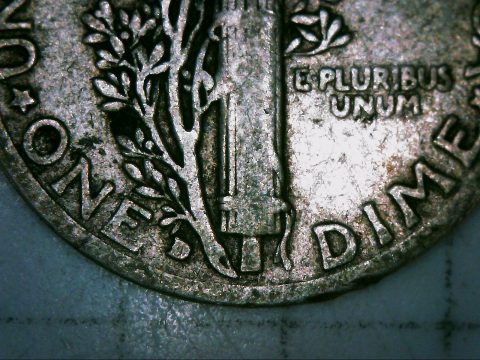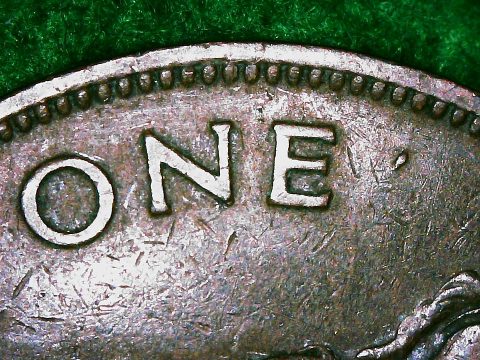1860 was a turning point in the history of copper coinage in Great Britain as this article from the Derbyshire Courier, 8th December 1860 details.
THE NEW COPPER COINAGE
Mr. Gladstones new copper coinage has just made its appearance. For lightness, beauty of colour, and freedom from the unpleasant smell of all the former copper coinages, the new coin is decidedly superior to the old. Out of 100 parts of this bronze coin, 95 parts are of copper, 4 of tin and 1 of zinc. The artistic execution of the new coin is good- particularly that of the reverse. Britannia with her shop and lighthouse is a noble figure
But this coinage must be regarded as the introduction of a new monetary principle. For the first time in our monetary system, a coin is issued the intrinsic value of which differes matertially from its nominal value. A pound of copper prviously was coined into 24 pence; in this coinage a pound of copper is coined into 48 pence. The weight of the last coinage of a penny of Queen Victoria was 291 grains, the weight of the new penny is only 145 grains. The new bronze penny is in every respect a mere token of value. It derives its nominal value from an Act of Parliamnent, and is preserved from fear of deprecation by being made a legal tender, and receivable by Government for taxes. An ounce of silber of the value of 5s 2d is coined into five shillings and six-pence. This is a departure from the strict principle of making coins of intrinsic or equivilint value = and it is owing to ths juducious departure from bullionist principle that our silve money is not melted down or expended. It is cheaper to buy silver in the open market than to use the coin as a metal for the purpose of trade or commerce. But the new copper coinage is of much less intrinsic value than the silver coinage. A bronze penny is in fact, intrinsically worth less than a half penny according to the value of the copper. This new coinage will therefore neither be melted nor exported but will continue to be what it was intended to be, i.e., Money. The saving to the country will also be very considerable – we shall use cheap tokens instead of our dea pennies.
Let anyone consider for a moment the saving which it would be to the country if we had cheap paper money, £1 Notes and upwards instead of dear gold soverigns. The interest annually saved on, possible, some 50 or 60 millions of soverigns would be considerable. The expense of the coinage would be avoided. But these advantages are trifling compared with that which would resilt from the deliverence of this country from the monetary crises, rises in the rate of discount, and panics.
When a few millions of gold are exported we have to create a deim-panic or a whole panic to bring the gold back. With Bank Notes for our domestic circulation, the withdrawal of fold would be perfectly innoxious. We should still possess paper money for our domestic circulation. This paper made, as the copper coinage is, a legal tender, and secured from deprecation by being receivable by the Government for all taxes, would discharge cheaply, efficiently, and with perfect security for all functions of money.
The only thing that stands in the way of this great monetary reform is an idle crotchet of Peel and Overston, which the panics of 1819, 1825, 1847 and 1857, have proved to be as ridiculous and impracticable as it is unjust and ruinous.
Derbyshire Courier 08 December 1860



